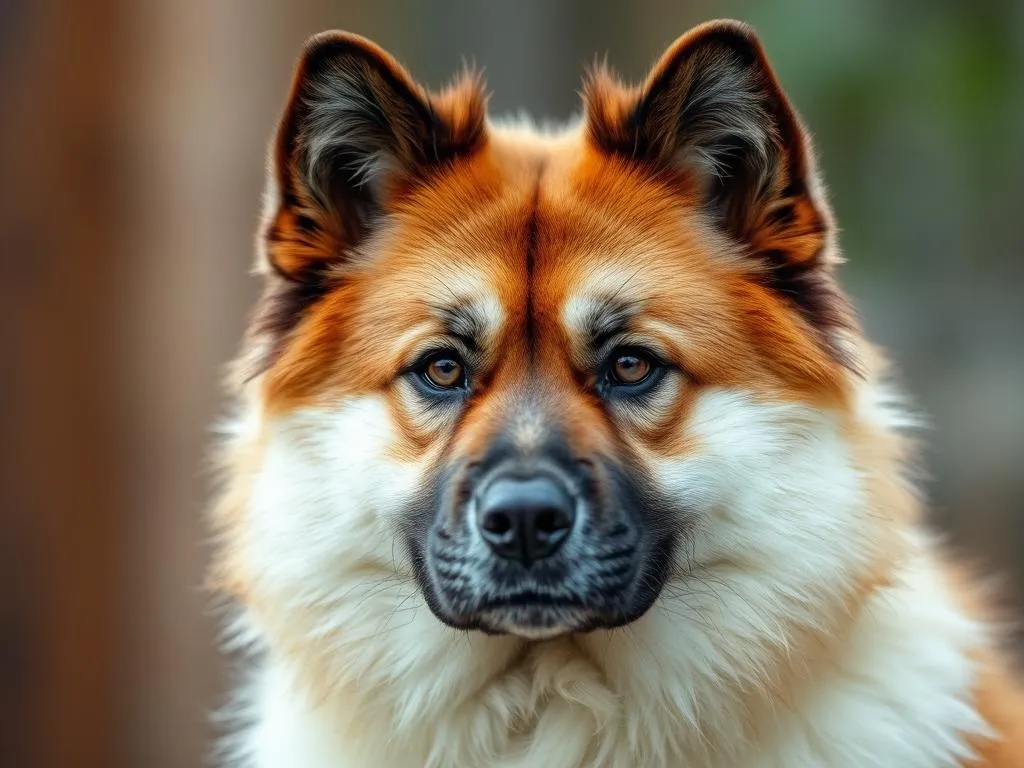
Introduction
Hypoallergenic is a term often used in the context of pets to describe breeds that are less likely to trigger allergic reactions in sensitive individuals. This can be crucial for those who suffer from allergies, as pet ownership can be a significant source of discomfort. Many people seek hypoallergenic pets to enjoy companionship without the associated allergy woes, especially those who have had negative experiences with traditional breeds.
The Akita, a majestic and powerful dog, is known for its loyalty and protective nature. Originating from Japan, this breed has captivated dog lovers with its striking appearance and devoted demeanor. However, potential Akita owners often wonder, is an Akita hypoallergenic? To answer this question, we must delve into the nature of dog allergies, the characteristics of the Akita breed, and what it means to be hypoallergenic.
Understanding Allergies and Hypoallergenic Dogs
What Causes Dog Allergies?
Dog allergies can stem from various sources, and understanding these factors is essential for allergy sufferers.
-
Dander: Dog dander, which consists of tiny flakes of skin shed by dogs, is a primary trigger for allergic reactions. When these flakes become airborne, they can be inhaled or come into contact with skin, leading to symptoms such as sneezing, itching, and respiratory issues.
-
Saliva and Urine: Proteins found in dog saliva and urine can also provoke allergic reactions. When a dog licks itself, saliva can cling to its fur and skin, eventually becoming airborne or transferred to surfaces around the home.
-
Other Factors: Environmental allergens, such as dust, pollen, and mold, can compound the effects of dog allergies. It’s essential to consider these factors when evaluating a potential pet.
What Makes a Dog Hypoallergenic?
Understanding what makes certain dogs hypoallergenic can help allergy sufferers make informed decisions.
-
Low-Shedding Breeds: Breeds that shed less fur may produce fewer allergens. These dogs often have hair that requires regular grooming, which reduces the amount of dander and saliva released into the environment.
-
Breed-Specific Traits: Some breeds produce fewer allergens than others due to their unique physiology. This may include the structure of their skin, the type of coat they have, or their grooming needs.
Are Akitas Hypoallergenic?
Overview of Akita Shedding and Grooming
When considering if an Akita is hypoallergenic, it’s crucial to look at their shedding patterns and grooming requirements.
-
Shedding Patterns: Akitas are known for their double coat, which consists of a soft undercoat and a coarse outer coat. They undergo seasonal shedding, typically twice a year, where they lose a significant amount of fur. This shedding can lead to an increase in dander and allergens in the environment.
-
Grooming Needs: Regular grooming is essential for Akitas to manage their shedding and maintain a healthy coat. Brushing them at least once a week, and more frequently during shedding seasons, can help reduce the amount of fur and dander in your home. However, it’s important to note that grooming can also release allergens into the air.
Allergens Associated with Akitas
To better understand the allergy potential of Akitas, we can analyze the allergens they produce.
-
Dander Production: Akitas produce a moderate amount of dander compared to other breeds. While they are not considered the worst offenders when it comes to dander production, they are not classified as hypoallergenic either. For those with severe allergies, even moderate dander levels can trigger reactions.
-
Saliva and Urine: Like all dogs, Akitas produce saliva and urine that contain proteins capable of causing allergic reactions. Their larger size can mean more saliva and urine, which may amplify allergy symptoms in sensitive individuals.
Personal Experiences and Case Studies
Personal experiences from Akita owners can provide valuable insight into the breed’s impact on allergies.
-
Testimonials from Akita Owners: Some Akita owners with mild allergies report that they can live comfortably with their dogs by maintaining strict cleaning routines and regular grooming. Others, however, have found it challenging to manage their allergies around Akitas, particularly during shedding seasons.
-
Veterinary Opinions: Veterinarians often advise potential dog owners with allergies to spend time with a breed before making a commitment. They suggest that while Akitas may not produce an overwhelming amount of allergens, individual reactions can vary significantly.
Alternatives for Allergy Sufferers
For those who are allergic but still wish to own a dog, exploring alternatives is essential.
Low-Shedding Dog Breeds
There are several dog breeds considered hypoallergenic, which may be better suited for allergy sufferers.
-
Poodle: Available in standard, miniature, and toy sizes, Poodles have a curly coat that traps dander and hair, preventing it from becoming airborne.
-
Bichon Frise: Known for their cheerful disposition, Bichon Frises have a soft, curly coat that requires regular grooming but produces minimal dander.
-
Schnauzer: With a wiry coat that sheds minimally, Schnauzers come in three sizes and are often well-tolerated by allergy sufferers.
-
Portuguese Water Dog: This breed is known for its hypoallergenic coat that requires regular grooming but produces fewer allergens.
Lifestyle Adjustments
If you decide to own an Akita despite allergies, there are lifestyle adjustments you can make to minimize allergens in your home.
-
Home Cleaning Tips: Regular vacuuming with a HEPA filter vacuum cleaner can help reduce dander and fur in your home. Wash dog bedding and toys frequently, and consider using air purifiers to filter out allergens from the air.
-
Pet Management Strategies: Designate certain areas of your home as pet-free zones, such as bedrooms, to create safe spaces for allergy sufferers. Regular grooming sessions can also help manage dander and fur, making it more manageable for those with allergies.
Conclusion
In summary, while Akitas are not classified as hypoallergenic, their level of dander and shedding can impact individuals with allergies differently. Regular grooming and cleaning can help manage allergens, but potential owners should carefully assess their allergy sensitivities before committing to this breed.
Owning an Akita can be a rewarding experience, but it’s essential to remember that every individual’s reaction to allergens can vary. Researching and understanding your own allergy situation is crucial before bringing an Akita or any pet into your home.
As you consider potential breeds, keep in mind the importance of finding the right match for your lifestyle and health needs. With thorough research and the right preparations, you can enjoy the companionship of a dog, even if you have allergies.









